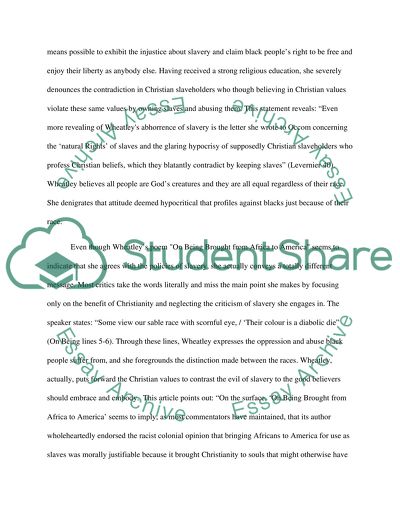Cite this document
(“Phyllis Wheatley as a slave Research Paper Example | Topics and Well Written Essays - 2000 words”, n.d.)
Phyllis Wheatley as a slave Research Paper Example | Topics and Well Written Essays - 2000 words. Retrieved from https://studentshare.org/literature/1460643-phyllis-wheatley-as-a-slave
Phyllis Wheatley as a slave Research Paper Example | Topics and Well Written Essays - 2000 words. Retrieved from https://studentshare.org/literature/1460643-phyllis-wheatley-as-a-slave
(Phyllis Wheatley As a Slave Research Paper Example | Topics and Well Written Essays - 2000 Words)
Phyllis Wheatley As a Slave Research Paper Example | Topics and Well Written Essays - 2000 Words. https://studentshare.org/literature/1460643-phyllis-wheatley-as-a-slave.
Phyllis Wheatley As a Slave Research Paper Example | Topics and Well Written Essays - 2000 Words. https://studentshare.org/literature/1460643-phyllis-wheatley-as-a-slave.
“Phyllis Wheatley As a Slave Research Paper Example | Topics and Well Written Essays - 2000 Words”, n.d. https://studentshare.org/literature/1460643-phyllis-wheatley-as-a-slave.


